All image credits to Spencer Milbocker
When you’ve been a freeskiing nerd for as long as I have (18 years, give or take), you get used to bidding farewell to the pros you looked up to. Charley Ager’s come and gone. Simon Dumont appears once every few years to lace a huge cork three before vanishing into other, perhaps more grown-up ventures. Speculation about Adam Delorme’s current whereabouts populates the Newschoolers forums. Such is the life cycle of action sports -- the knees start to creak, the constant pressure to release content becomes overwhelming, and suddenly, the prospect of quitting professional skiing and becoming a realtor in Provo, Utah, sounds promising.
Yet, with every rule, there’s an exception. While many pros I grew up watching have stepped away from skiing, a select group lingers, standing defiant against the neverending march of time. With these skiers, you sense that their passion for the sport is so overwhelming that they couldn’t quit, even if they wanted to.
Mike Hornbeck and Phil Casabon, whose names still appear in magazine spreads, recent film projects, and Armada’s team roster, are among the cadre of skiers who’ve stuck around for the long haul. Hornbeck and Casabon were doing their thing years before I could drink legally (I’m 25 now), and with the drop of their upcoming film “Truck Talk” on February 27th, they're poised to show that they’re still getting after it.
“Truck Talk” is a collaborative vision dreamt up by Hornbeck and Casabon. While the pair have repeatedly crossed paths throughout their careers, they’ve never had a chance to work together on a joint project set on either of their home turfs. The film, shot primarily by skier-turned-filmer Spencer Milbocker, aims to meet two goals: show off the urban potential of Hornbeck’s stomping grounds, and fuse the timeless styles of two classic street skiers. Relatability is a central pillar of the project -- Hornbeck, Casabon, and Milbocker ditched the fancy camera gear, opting to use a GoPro for most shots. After watching “Truck Talk,” the crew hopes that viewers could think, “oh, we could do this,” says Casabon.
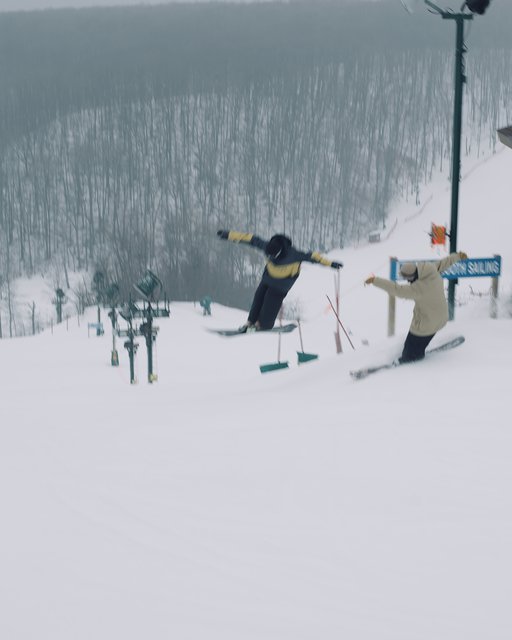
The film’s title was happenstance. When Casabon arrived in Michigan, he hopped into Hornbeck’s truck and started filming with his iPhone. “I just pulled out my phone in the truck first thing because Mike is an entertaining character. And I started recording our conversations in the car, which were mainly monologues at first, me listening to Horns spit some game.” Casabon’s ad-hoc documentation spiraled into a cinematographic structure, with the team splicing truck-borne dialogue into various clips shot in the streets of southwest Michigan and the slopes of Nubs Nob.
To hear more about “Truck Talk” and the crew’s thoughts on freeskiing in general, I contacted Milbocker, Hornbeck, and Casabon. As we chatted, Hornbeck’s young kids babbled in the background, a reminder that even as some skier's dedication to the sport transcends time, we’re all still moving forward.
This interview has been edited for clarity and length.
Did you guys have any specific goals in mind with the project, or was it just to link up because we haven't before and make this happen?
Hornbeck: That's the goal. I guess as cliche as it sounds was just, you know, ski with Phil because that's always a special thing… I've been filming with Spencer for a while. So it was, you know, that was one of my goals was to get Phil in front of Spencer on the cam and see what that looks like.
What's the street scene like in Michigan? Are there good spots around there?
Hornbeck: Yes, mainly just the snow is the hardest part overall. There are good spots. They got definitely a little bit of a look to them. They're more on the simpler side. Just because, again, the snow situation and if you hit it right, it's really good; if you don't hit it right, it's kind of more plain, but it also gives it a good fun look. You know, like it makes it feel like anybody can go do it.
Phil, what do you think of the spots down in Michigan?
Casabon: The spots are dope, and he [Hornbeck] brought me to the ones that I wanted to ski. I really got the tour. I actually hit a spot that I saw Yan Dofin hit, this professional snowboarder from Quebec that hit a spot in Any Means a Rome movie in 2007. I’ve been eyeing that spot for that long. So 16, 17 years later, I get to ski on that spot. One of my favorite clips in the movie, so it was just full circle, loved it.
What would you guys like to see more of in freeskiing?
Milbocker: Kind of what we are seeing. I mean, there's a big push for street movies in recent years, I would say. Definitely in that direction. I mean, I think we'd like to accelerate a little more, and that definitely, like we were saying, relatability-wise because it's pretty much like three guys in a truck with a GoPro, and that's pretty doable for most people who own a pair of skis, you know.
Casabon: What I’d like to see in my region specifically, that goes for Michigan as well as this, like crews getting together and sort of honing in on their region and really exploiting extracting the best out of the local terrain wherever people they at. So it gives like this diversity. When you look at footage, you're not looking at Park City again and again like you're seeing Nubs Nob, you're seeing Sunnapee, you’re seeing all these like localized resorts that like have these special features and looks that you're not used to.
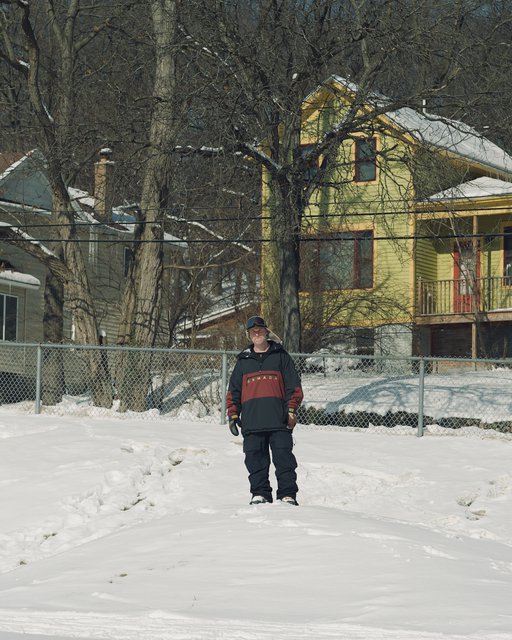
What kind of changes have you guys seen in skiing since when you guys came up and then where skiing’s at now?
Hornbeck: Just how footage is presented, and it's just all on Instagram, and it's all for the quick, quick likes and hype, you know, rather than taking time to like, put something out that's, that's good, you know? Like, you could even film a park edit now and take time, and it would be fresh because no one's doing it. Whereas when we first started, there's like good park edits coming out all the time. And lately, I just feel like it's on Tik Tok or Instagram and stuff. And, like, yeah, even park edits are dead.
Casabon: The big thing that changed is that people are less patient. And even myself, I’m guilty of it for Instagram… The sponsorship expectation is like you gotta be present and be relatively interesting [on Instagram].
Do you guys see any positives to the rise of Instagram skiing and people being able to self-upload content in that way?
Hornbeck: I'd say just for the younger kid trying to maybe learn tricks. Like if he's really trying to analyze something, you could go to whoever's page and see a trick and watch it over and over and right there. You don't have to own the DVD or anything. And so for, like the younger kids, they get inspired. That’s probably pretty good, but there's like a fine line there.
Casabon: I think for visibility, it's great for a lot of people to be able to have that platform. It’s like going from unknown to, like, oh, ‘whose this kid,’ and then he just like blows up from it. But then again, that's like a way to get noticed. But that's not a means to a career.
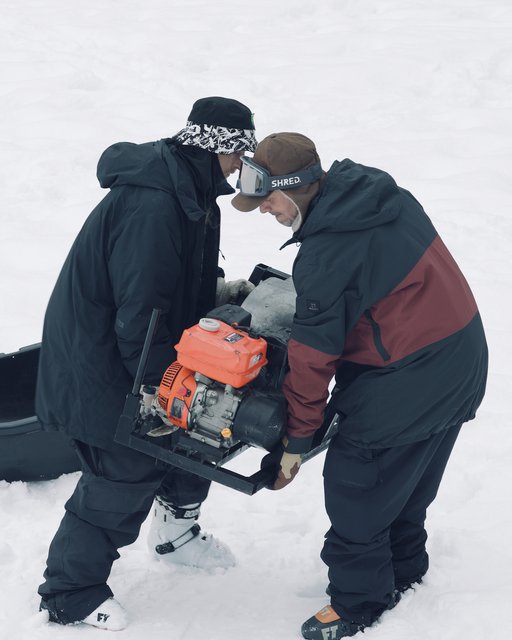
What things or skiers in freeskiing right now are you excited about?
Casabon: Jake Mageau is one that gets me really hyped. Really gives a good mix of skiing, and partnering up with Brady [Perron] feels like a tasteful duo. EdJoy [Edouard Therriault] from Quebec who’s like crushing all ends of the spectrum like competing, video, editing, just doing it all wearing all hats. That’s really inspiring to me, and it brings me life force to be energized and feel young around them.
Hornbeck: They're definitely a different generation just with their spot selection and things, you know. It's sometimes, it's things that I would never really think of hitting, but it's cool to see that they make it work, and like it's kind of just unlocking more and more and more for me because I can look at it and be like, ‘oh damn that spot goes,’ or there's a spot like that here, and I'm gonna go ski it because it looks sick.
How have your relationships with skiing changed over time?
Hornbeck: I've been riding the Stranger recently and kind of let that ski, like let me kind of reinvent a little bit -- in my head at least -- so it kind of keeps fueling the fire that way, like I'm not trying to do the same thing that I've been doing for however many years, you know. Say a trick that I've done, like, I can go back and do it. And it'd be awesome, but it's like, I kind of let the ski pick the spots for me a little bit more. So then that leads down a new avenue rather than me going back to my stock skiing that I know I know how to do.
Casabon: I see it as a hip-hop career. I'm looking at these dudes reinventing themselves. For instance, NAS or Redman, artists of those kinds, have been in the game for three decades now, and they're still making bangin’ music, and their speech definitely changed from Illmatic to Kings Disease III. And it's like, damn, dude still has shit to say because he's stayed on the bus… So right now it's just a matter of, like, going back, feeling out those two sticks under my feet and being honest, and being like, oh, ‘this is what I can do.’ It’s the most fulfilling thing I can do, so I might as well do it again and again and again… I'm gonna keep filming shit and doing it, you know, and I think that's the insatiable aspect of the pursuit. I'm never gonna be satisfied. So I’m going to keep coming back for more.
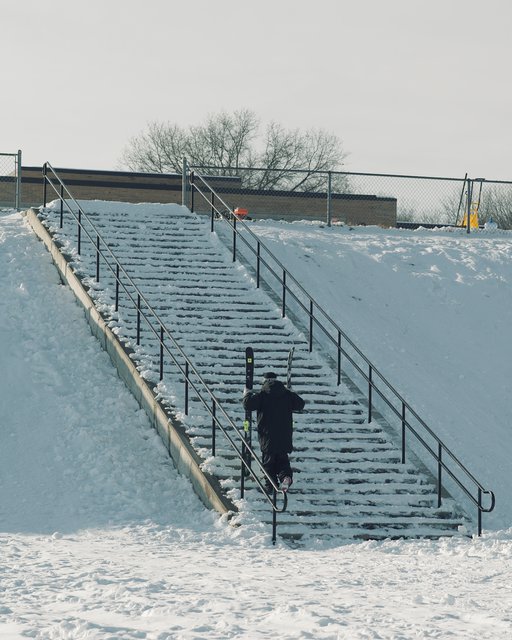
What’s the future with skiing look like for you guys?
Casabon: I'm trying to get a track from Method Man and Redman for the B&E show, doing that with Brady, and bring back the B&E invitational. Making this movie right now with Horns and Spence, “Truck Talk,” and making a movie with Brady this year. Armada is making a flick next year, so basically, just being in tune with the spirit of the time and just aligning with the moment and keep creating... I got my hands full for the next ten years with this skiing shit.
Hornbeck: Yeah, for me, it's just, yeah, filming probably for the Armada stuff and then trying to make like a third mini-movie to go with “Wreckallections” and “Wreckanize,” so that's kind of like my big, big push currently. And a lot of skiing just trying to reinvent, so maybe a little less filming and trying to come up with the next movement.

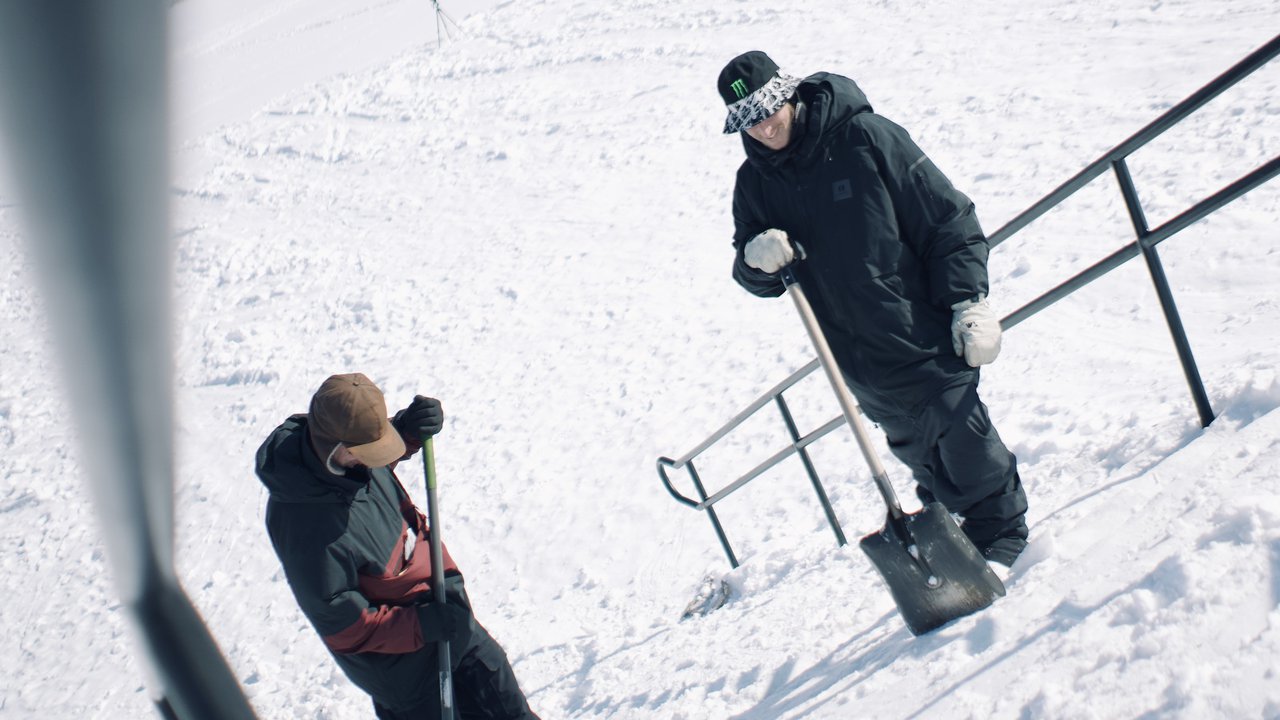
Comments